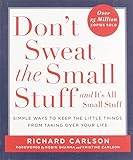Men have a four times greater chance of being an alcoholic if their fathers are alcoholic. That’s been known for a long time.
Now we know that women also can inherit alcoholic genes.
A long held myth is that women’s conditioning as women is more likely to protect some of them from developing alcoholism even though they have parents who are alcoholic.
Also, twins who have an alcoholic identical twin are much more likely to be alcoholic themselves than are twins who had an alcoholic fraternal twin (from different eggs). This is equally true in women and in men.
More surprisingly, men who have an alcoholic twin sister have very high rates of alcoholism.
It has also been found that women with an alcoholic identical twin sister are six times more likely to be alcohol dependent than other women.
Nonidentical twins, who are not more alike genetically than ordinary sisters, are three times more likely to be alcohol dependent if their twin had a drinking problem.
"It used to be believed that depression predicted increased risk of alcohol problems in women, whereas a history of childhood behavior problems predicted alcoholism risk in men.
We found that depression is a potent predictor for alcohol dependence in both men and women," said Heath, one of the researchers. "A history of behavior problems also is as strong a predictor in women than in men -- slightly more powerful in women, in fact."
Heath hopes the study will serve as a warning sign for women who know they have alcoholic relatives. "Our hope is that our research will refocus attention on alcohol problems in women, particularly women at genetic risk with relatively mild alcohol problems that often go undetected by families and physicians," he said.
"Often, these people don’t get treatment -- until it is too late. Despite what people used to believe about differences in the causes of alcoholism in women and men, it is the similarities rather than the differences that are most striking. As increasing numbers of young women drink heavily, rates of alcoholism in women are likely to increase."
Heath AC, Bucholz KK, Madden PAF, Dinwiddie SH, Slutske WS, Bierut LJ, Statham DJ, Dunne MP, Whitfield JB, Martin NG. "Genetic and Environmental Contributions to Alcohol Dependence Risk in a National Twin Sample -- Consistency of Findings in Women and Men". Psychological Medicine. 27(6):1381-1396, 1997 November.
See also;





















 Amazon.com: Recovery: A Guide for Adult Children of Alcoholics: Books: Herbert L. Gravitz,Julie D. Bowden
Amazon.com: Recovery: A Guide for Adult Children of Alcoholics: Books: Herbert L. Gravitz,Julie D. Bowden




